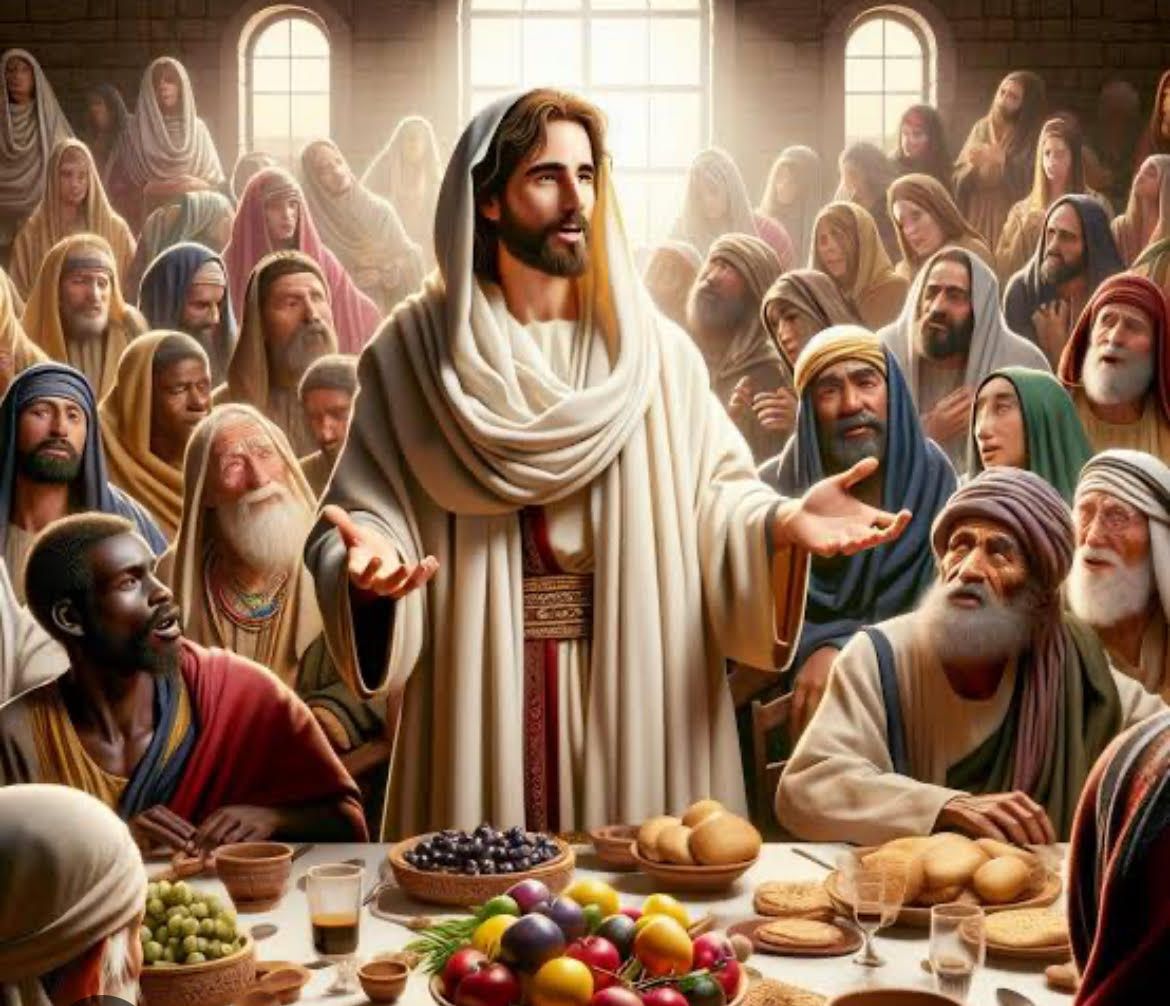22nd Sunday in Ordinary Time
August 29, 2025
Gospel Reflection
Luke 14:1,7-14

Though we have probably heard or read today’s Gospel passage many times, it may not yet have occurred to us that Jesus was hardly just giving advice about where to sit at someone else’s dinner table. It is good to note that St. Luke introduces Jesus’ comment by saying that he told his fellow guests at the Pharisee’s house a “parable.” A parable is a story that illustrates deeper and broader meanings. Our Lord’s parables usually convey important moral teachings or give instruction about spiritual or supernatural realities. The parables Jesus uses on this occasion are inspired in what he sees happening around him in the Pharisee’s house. Members of this religious group were very image conscious and gave great importance to external details like dress, mannerisms, detailed rituals, and having their social position recognized. Though such things have their place, for the Pharisees they became more important than the sincere effort to grow in personal virtue, kindness, interior prayer and good intention. Though there were good men among them, many could be exceedingly proud, arrogant and intolerant. Our Lord Himself would eventually become a victim of their intolerance and of the jealousy of the Sadducees, another group of elite persons in Judea. Jesus remarks, then, are really aimed at these major defects, which, sadly, are not uncommon even today. In fact, we are virtually assured of finding traces of them in our own selves. So Our Lord begins by posing the similar situation of being invited to a wedding banquet.
The image of a wedding is not accidental. Jesus constantly uses the image of a wedding banquet to speak of our being invited by God to eternal life in communion with Him. The way to heaven is not found or followed by those who make proud declarations of self-praise, or at least think in these terms, nor by those who constantly put themselves before others. It is found and followed by men and women who strive to remain humble of heart. Those who will find themselves in the first places in heaven are they who were happy to make way for others. These seats will be occupied by those who knew how to be of service, who were prepared often to wait their turn in the things of this world instead of stepping upon others. “The last shall be first”, Jesus concludes.
Humility does not mean shying away from taking on important roles that one is, in fact, qualified to fulfill. It means not exaggerating our merits. It means understanding that our strengths and aptitudes are gifts entrusted to us so that we may use them to promote not only our own well being but that of our fellow travellers through life. At the same time, a humble person recognizes the merits of other people. Such a person appreciates whatever good is done to himself or herself, even if it is not something of great weight. St. Teresa of Avila used to say that she was grateful for as little a thing as a sardine that might be given to her. Notice that Jesus then goes on to form another parable likewise inspired in what he observes on this occasion. It is the suggestion of inviting to a festive occasion those who can later return the favour in like manner. Once more we should understand the lesson broadly. Do not give simply so you can later receive. Do not only seek the friendship and company of those who can help you. Do not limit your interest, or your courtesy only to those who are of your own social background or position in society. Strive to treat each person you meet with respect, and share your good fortune especially with those who have little to spare or who need the gift of someone else’s concern. And do not be proudly condescending in doing such things. Follow the example of our God who sat down at table beside us.


